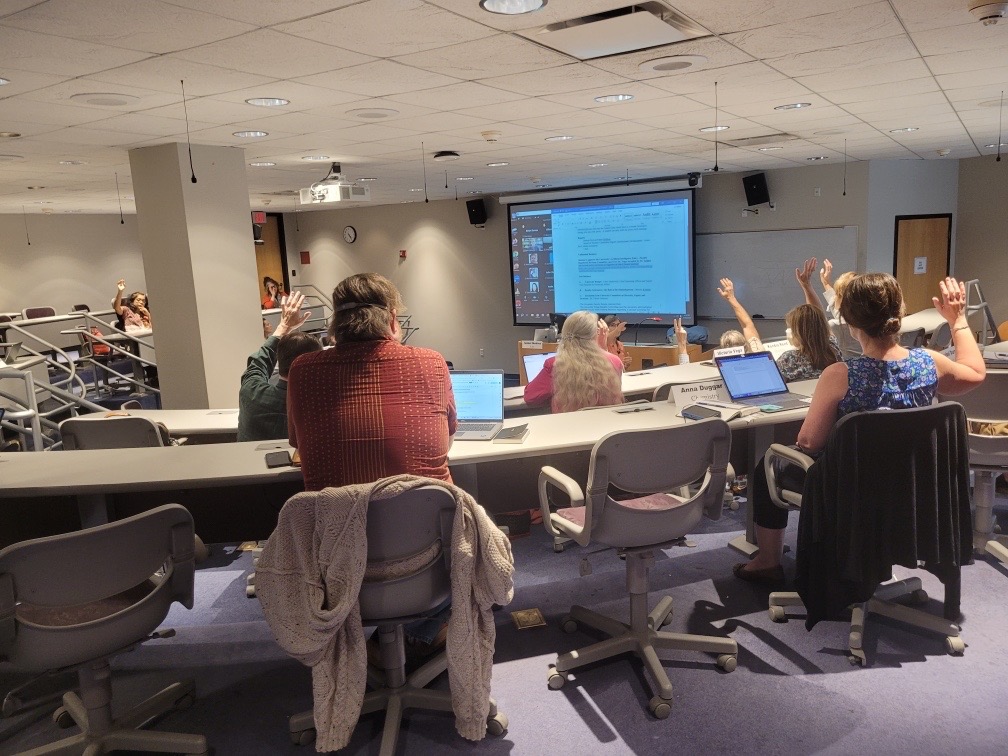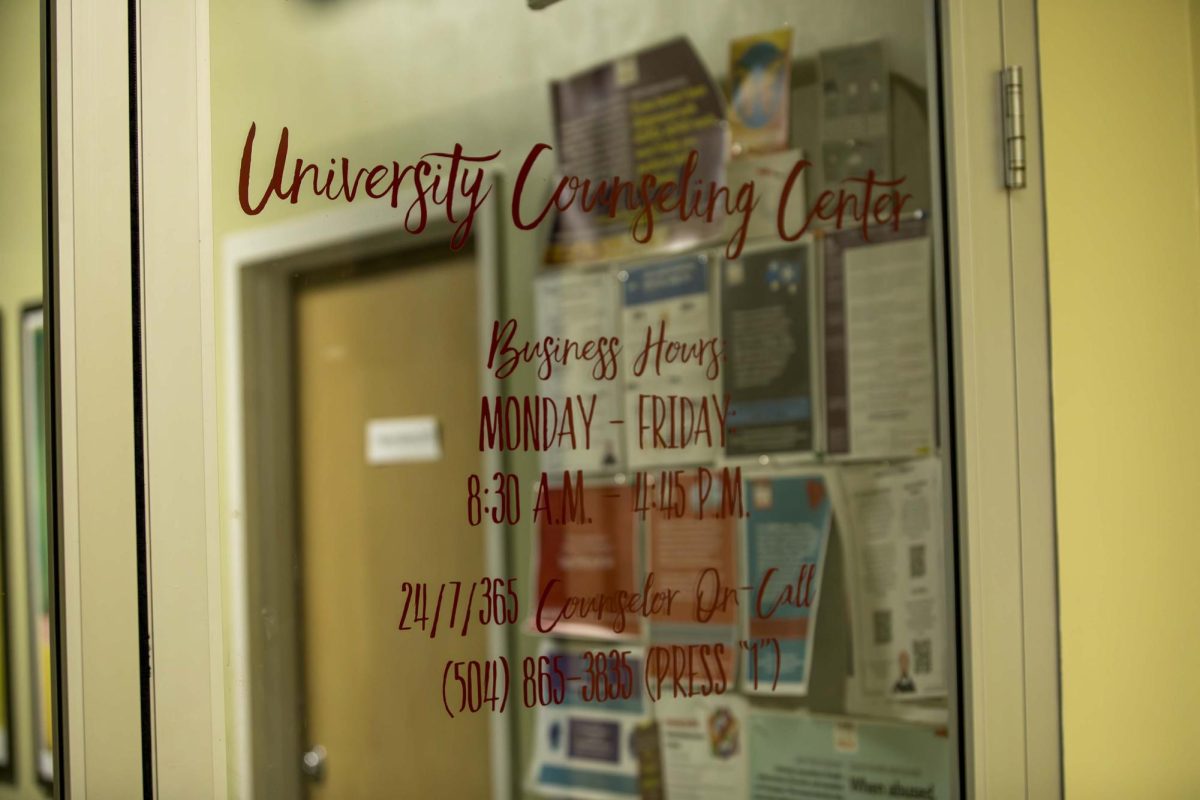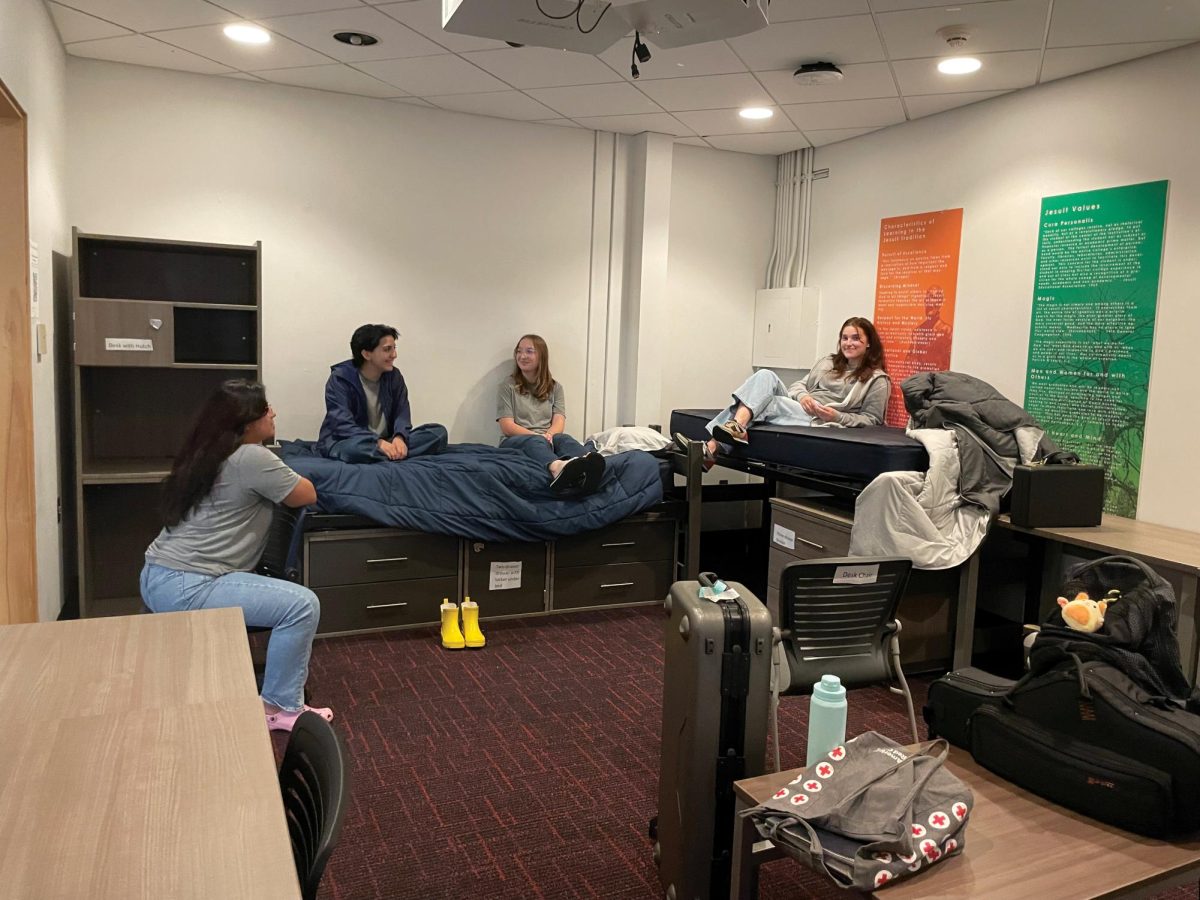Walter Block, professor of economics, is considering a lawsuit against The New York Times for libel.
An article published by The New York Times titled “Rand Paul’s Mixed Inheritance” included comments made by Block in its characterization of Senator Rand Paul’s libertarian political background. Using Block as an example of libertarians who “championed the Confederacy,” the article said Block “described slavery as ‘not so bad'” and “faulting slavery because it was involuntary.”
Block said he spent many hours undergoing a telephone interview with Sam Tanenhaus, a reporter who co-wrote the article.
“I must’ve spent three or four hours with this guy trying to teach him what libertarianism was about,” Block said. “He never did call me after he wrote it and said ‘here’s how I’m quoting you, is this accurate?'”
Kelly McBride, media ethics expert at Poynter Institute, said that reporters might not always be able to contact sources again.
“You can’t get back to every source when you’re doing daily work,” McBride said. “You can do that when you’re doing a magazine piece, you can do that when you’re doing a long weekend piece, but you cannot do that when you’re interviewing when you are doing a quick turn on a daily paper.”
Tanenhaus said that everything printed in the article was taken directly from the interview, and he acknowledged that what Block said may have previously been mentioned elsewhere.
“Everything used came directly from the interview,” Tanenhaus said. “Some of the complication may have arisen if Professor Block said something quite similar in other publications or lectures.”
Block said that he has written on the subject of slavery and that his writings can provide evidence of his stance on slavery and his usage of the institution in a figurative manner.
“It’s not as if this is the first time I’ve said this,” Block said. “I’ve got a paper trail saying exactly what I’ve said, namely it’s hypothetical to say that slavery was OK. It would only be OK if it was voluntary.”
Block said his attributed quotes in The New York Times article could be found in an article he published almost a year prior to the interview with Tanenhaus. In the article titled, “Chris Selley Is a Pussy Libertarian; I’m Not,” Block says involuntary slavery is at odds with the libertarian construct of free-association.
“Free association is a very important aspect of liberty. It is crucial. Indeed, its lack was the major problem with slavery,” Block wrote in his article. “The slaves could not quit. They were forced to ‘associate’ with their masters when they would have vastly preferred not to do so. Otherwise, slavery wasn’t so bad.” David Gordon, senior fellow at the Ludwig von Mises Institute, said that free-association is when individuals can choose for themselves, without being forced, whether or not to interact with others.
“Free-association just means that each person has the right to decide whom he or she wishes to associate with,” Gordon said. “This is a principle that almost everyone accepts in personal life: You have the right to choose your friends, and you don’t have to be friends with someone, if you don’t want to. Libertarians extend this principle to economic transactions as well.”
Tanenhaus said that Block brought up the topic of slavery without prompting when explaining voluntary and contractual association.
“What was said was in the context of the interview, and he mentioned it himself. He went onto say ‘slavery itself was not so bad,’ in a very direct way,” Tanenhaus said. “He wasn’t using it to say ‘here is what some people would say regarding slavery.'”
Block said that he explained to Tanenhaus that slavery goes against the non-aggression principle of libertarianism.
Floy Lilley, adjunct scholar at the Ludwig von Mises Institute, said the principle is akin to the golden rule.
“The non-aggression principle is that you may defend yourself, but you may not aggress against innocents in any way. It is a flavor of the golden rule to do unto others as you would have them do unto you,” Lilley said. “Your actions with others are always voluntary, never coerced.”
Block said that during his interview, he tried his best to provide context for his comments.
“I gave him all sorts of examples,” Block said. “I tried to make the point as dramatically as I could. I went so far as to say that the only thing horrid about actual slavery was that it violated the non-aggression principle.”
Following the publication of The New York Times article, Block exchanged a series of emails with Louis Lucero II, senior editor for The New York Times.
Block told Lucero that his remarks to Tanenhaus were made figuratively.
“Clearly, there was a bit of sarcasm in my statement,” Block said in an email to Lucero. “I was talking in hypotheticals. Yet your Mr. Tanenhaus made it appear as if I thought that actual slavery was not ‘so bad.'”
McBride said that reporters have an obligation not to sensationalize their sources.
“The reporter also has an obligation to avoid using the most sensational, inflammatory quote in a way that can make a source look outrageous,” McBride said. “That particular quote is the type of quote that can easily be taken out of context, and so the reporter has an extra obligation to make sure they aren’t resting on simplicity or over simplifying the point that the source is trying to make.”
The reporter’s interpretation of a quote will influence its usage within a story, which might have led to a disagreement of the context, McBride said.
“I think that reporter tried in the description to clarify what this particular professor was saying,” McBride said. “But because he put the phrase ‘slavery was not so bad’ in quotes and then used paraphrasing to explain the rest of the meaning of what the professor was trying to convey, I think that they probably disagree on whether that was adequate.”
McBride said the source is also responsible for what is used by the reporter.
“I do place some of the burden on the professor,” McBride said. “That quote ‘slavery was not so bad’ that is a particularly inflammatory, risky thing to say to a reporter. And if you don’t want to be quoted on something, then you also have to be very conscious of what you’re saying.”
Block said he requested a written apology and sent a letter to the editor to be published – both were declined.
Despite not being able to comment, Lucero confirmed the correspondence, which Block published along with his initial response in the article “Reply to the Scurrilous, Libelous, Venomous, Scandalous New York Times Smear Campaign.”
“I’m not able to comment,” Lucero said. “But I think it’s been reproduced accurately.”
In an email response to Block, Lucero said he stands by the decision not to publish Block’s letter or an apology.
“Not including the full text of a nearly year-old blog post in our article does not constitute factual error,” Lucero said in the email. “Because we are only able to address factual errors, and not mere omissions, we don’t believe a correction is warranted in this case.”
In order to make a source’s comments understandable to the reader, McBride said that reporters often omit the majority of what a source says.
“It is often the case that less than one percent of the entire volume of what the source says is used in a story,” McBride said. “Sometimes it is a survival mechanism that when the reporter wants to quote you, they have to find the simplest thing that you said because everything else is this winding pathway that the reader would not be able to digest.”
Block said he is still considering whether he will take legal action against The New York Times.
“It would take a lot of time and money,” Block said. “That time would be better spent towards publishing books and articles.”
In his article, “Reply to the Scurrilous, Libelous, Venomous, Scandalous New York Times Smear Campaign,” Block said that despite the backlash he has received he does not regret his interview with Tanenhaus.
“I would gl
adly do it again,” Block said. “For one thing, there is always the outside chance of converting such a person to the freedom philosophy. For another, there is the possibility, admittedly unlikely, that a mainstream journalist would at least be fair.”
Devinn Adams may be reached at [email protected]













